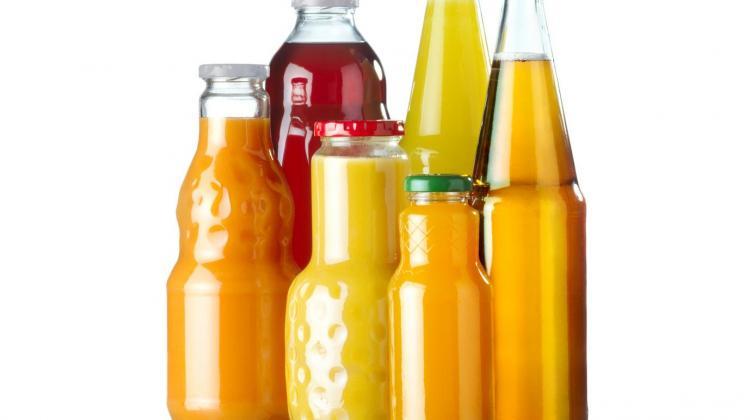Expert: There is no link between drinking juices and cancer
 Photo: Fotolia
Photo: Fotolia
We can not talk about a causal relationship between drinking juices and higher risk of cancer, argues Dr. Agnieszka Kozioł-Kozakowska from the Jagiellonian University, commenting on the results of a recent study of French scientists. In her opinion, it is important to be particularly cautious when drawing conclusions concerning this issue.
The expert refers to a study published recently in the British Medical Journal by experts from the Université Sorbonne Paris Cité. They suggest that sugary drinks, including soft drinks, fruit juices, as well as tea or coffee with sugar, may increase the risk of cancer. All beverages containing 5% sugar are considered to be sweetened beverages, including fruit juices that have not been additionally sweetened and energy drinks.
French researchers analysed the incidence of cancer among 100,000 people over the period of 5 years. They came to the conclusion that people who drank at least 100 ml of sugary drinks per day were at an 18 percent higher risk of cancer. Calculated per 1000 subjects, this meant that instead of 22 cases of cancer, 26 such cases were recorded, four more compared to the group of people who had not consumed sweet drinks in such quantities.
One of the study authors, Dr. Mathilde Touvier admits that these observations only suggest a relationship between sweetening beverages and a higher incidence of cancer. The results show that those who drink more such beverages are more likely to get ill, and those who drink less are less likely. But there is no evidence that regular consumptions of these drinks causes cancer.
Dr. Agnieszka Kozioł-Kozakowska, a dietitian at the Department of Paediatrics, Gastroenterology and Nutrition the Jagiellonian University Medical College, points out that it is an observational study. Therefore, she emphasizes, we can not speak of cause-and-effect relationships, as the authors themselves reserve, stating that "causality of the revealed associations can not be ruled out".
"The use of observational studies in relation to diet is negatively viewed by experts due to methodological errors" - the specialist reminds.
The dietician also remarks that the observation period is exceptionally short for a study concerning cancer diagnosis. "It is very unlikely for a food product to affect the development of cancer after 3-5 years of consumption. A researcher quoted by Cancer Research says only one in six cancers is detected during the 3-year period between follow-up visits, while breast and colorectal cancer develops over about 10 years" - she says.
According to Dr. Kozioł-Kozakowska, this is the main limitation of the study of French specialists, the more so that the cancers they reported were breast cancer, prostate cancer and colorectal cancer. "It is therefore unlikely that these slow-developing cancers have been caused or accelerated by the intake of juice during the 5 years before the diagnosis" - she emphasizes.
In her opinion, it is also doubtful that the consumption of fruit juices is statistically related to the overall risk of cancer, but not to the individual cancers reported by researchers. "This suggests that the discovery is coincidental and does not reflect a clinical relationship" - she emphasizes.
The expert also points out that in the case of a self-completed questionnaire, there is a very high risk of erroneous classification of 100% fruit juice. The study showed that 100 percent fruit juice accounted for 45 percent of all consumed liquids, beverages sweetened with sugar - 36%, and beverages containing artificial sugars - 19%. In her opinion, this is inconsistent with European data that show that drinks are consumed more often than juices.
"The authors state that fruit juice can increase the risk of cancer in various ways. However, all of them have been refuted by intervention studies" - says Dr. Kozioł-Kozakowska. "The mechanisms included obesity (fruit juice was not related to obesity in the British government`s expert report from 2015), increased inflammation (several intervention studies showed lower inflammation after daily consumption of fruit juice), high glycaemic index (fruit juice has a low glycaemic index according to international classification) and an increased risk of insulin resistance or adverse blood glucose levels (no effect on these markers has been confirmed in meta-analyses)" - the expert reminds.
"Therefore, the conclusions concerning fruit juices are not justified, taking into account the wider, published evidence" - believes the dietician from the Jagiellonian University.
"It should be emphasized again that such studies can not demonstrate a causal relationship between the consumption of a product and the development of the disease. Therefore, one should be particularly cautious when drawing conclusions, which the authors themselves mention in the limitations of the study" - says Dr. Kozioł-Kozakowska. (PAP)
zbw/ ekr/ kap/
tr. RL
Przed dodaniem komentarza prosimy o zapoznanie z Regulaminem forum serwisu Nauka w Polsce.















